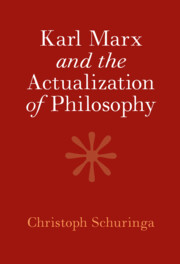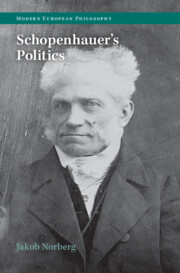Karl Marx and the Actualization of Philosophy
It is indisputable that Marx began his intellectual trajectory as a philosopher, but it is often thought that he subsequently turned away from philosophy. In this book, Christoph Schuringa proposes a radically different reading of Marx's intellectual project and demonstrates that from his earliest writings his aim was the 'actualization' of philosophy. Marx, he argues, should be understood not as turning away from philosophy, but as seeking to make philosophy a practical force in the world. By analysing a series of texts from across Marx's output, Schuringa shows that Marx progressively overcame what he called 'self-sufficient philosophy', not in order to leave philosophy behind but to bring it into its own. This involves a major reinterpretation of Marx's relationship to his ancestors Aristotle, Kant and Hegel, and shows that philosophy, as it actualizes itself, far from being merely a body of philosophical doctrine, figures as an instrument of the revolution.
- Argues that a full understanding of Marx's project resolves a number of interpretative difficulties, including the transitions between different phases of his thought and the contentious issue of the relation between philosophy, politics and economics in his work.
- Serves as a helpful introduction for readers to some well-known but challenging texts and some undeservedly neglected but very important texts (such as Marx's Critique of Hegel's Philosophy of Right)
- Provides an overview of the whole of Marx's intellectual project, from his early philosophical writings to the late writings on capital
Product details
April 2025Adobe eBook Reader
9781009304832
0 pages
This ISBN is for an eBook version which is distributed on our behalf by a third party.
Table of Contents
- Introduction
- 1. Marx on the history of ancient Greek philosophy
- 2. Marx's critique of Hegel: politics
- 3. Marx's critique of Hegel: logic
- 4. Humanism and naturalism in the Paris Manuscripts
- 5. From mere philosophy to historical materialism
- 6. Capital: value, labour-power, exploitation, crisis
- 7. Capital: dialectic
- 8. Actualizing philosophy
- Bibliography.





